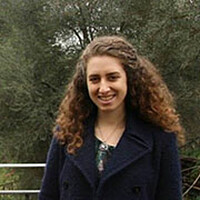Euro 2016 terror attack thwarted, Belgian police say
Loading...
On Saturday, three men were prosecuted for attempting to attack fans gathering to watch the Euro 2016 game in squares or at bars after Belgian police conducted a country-wide overnight raid, according to Justice Minister Koen Geens and Deputy Prime Minister Kris Peeters, in an interview with the Flemish broadcaster, VRT.
Despite the commotion, Belgian Prime Minister, Charles Michel, announced the soccer-related events would continue, with extra security measures.
“We want to continue to live normally. The situation is under control,” Michel told a news conference. “The message that we want to send is one of determination, a message of serenity, a message of calm.”
Following the November 2015 terror attacks in Paris that left 130 people dead, critics challenged Belgium's security measures last year after police learned that the explosives used in the attacks had been manufactured in Belgium and that the attacks had been planned there. This time, improved intelligence sharing may have helped: An alert that extremists who had fought in Syria were headed for Belgium and France enabled Belgian police forces to locate and apprehend the alleged plotters.
Friday's police raids mostly took place in the districts of Molenbeek, Schaerbeek, and Forest, three areas the plotters of the Brussels and Paris attacks used as bases.
Belgium may need greater vigilance than other countries. According to the New York Times, the country has the highest number of jihadi fighters of any European country, with 46 fighters per million people.
When Belgian police foiled an attack after the 2015 Charlie Hedbo attacks in Paris, Slate’s Joshua Keating wrote: “The Belgian police may claim today to have ‘averted a Belgian Charlie Hebdo,’ but it’s clear that the country’s radicalization problem is much larger, and will take more than police raids to address.”
In March, an anonymous Belgian counterterrorism official told BuzzFeed News, “Frankly, we don’t have the infrastructure to properly investigate or monitor hundreds of individuals suspected of terror links, as well as pursue the hundreds of open files and investigations we have.”
With the European Union's relatively open borders, international cooperation is imperative for countries like Belgium, particularly during this lengthy period of heightened security.
In February, three months after the Paris attacks The Christian Science Monitor's Rachel Stern reported on the surveillance regime that emerged in Europe in the wake of the attacks:
In the wake of the tragedy that left 130 dead, European governments bemoaned an intelligence "black hole" stemming from countries failing to share intelligence. Now, lawmakers are considering ways of enhancing surveillance practices and rethinking many privacy safeguards designed to prevent pervasive data tracking and collection across Europe.”
According to an interview with Politico, Rob Wainwright, the head of Europol, in January, 25 of 28 European Union countries were connected to Europol’s formal terrorist intelligence information exchange, up from 14 after the November 2015 attacks, and the remaining three were in the final stages of joining.








